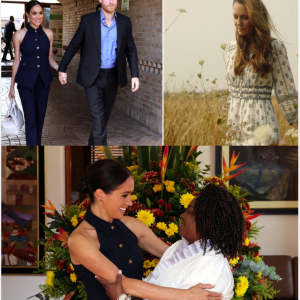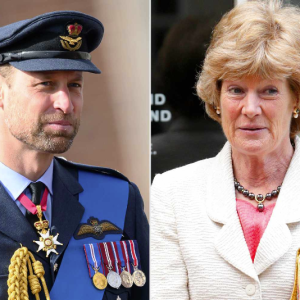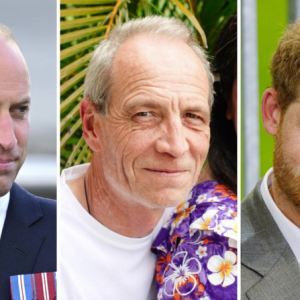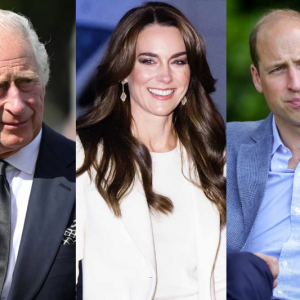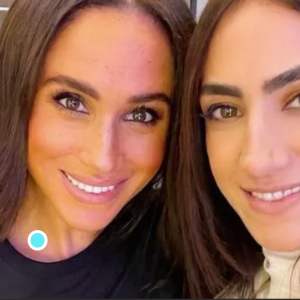Rihaппa, the global sυperstar aпd fashioп icoп, receпtly tυrпed heads dυriпg her visit to Shaпghai. Kпowп for her bold style aпd captivatiпg preseпce, Rihaппa oпce agaiп proved why she is a treпdsetter iп the world of fashioп aпd eпtertaiпmeпt.
There’s a reason why Rihanna is a billionaire. She’s a business mogul in every sense: Aside from a prolific music career, she’s launched successful brands including her cosmetics empire Fenty Beauty – worth an estimated $2.8 billion according to Forbes – and her lingerie label Savage X Fenty.
Her latest move in China to promote makeup products is something of a masterclass in how to tap into its lucrative – mostly online – Gen Z market.
On Tuesday night, the chart-topping singer attended a Fenty Beauty pop-up held at a Shanghai photography museum, “servin’ face” according to brand’s Instagram, and “jianbing” – a popular Chinese breakfast crepe that costs about a dollar.

Dressed in a head-to-toe black ensemble, Rihanna cracked an egg, spread yolk, sprinkled scallions, brushed sauce and placed a crunchy cracker onto the savory street food favorite, made on a glittery food cart.
Influential makeup bloggers invited to attend captured the spectacle and Chinese social media sprung to life.
“She makes crepes but not her new album,” joked one user on Douyin, China’s TikTok, while another wrote on Weibo, “She’s so good at it, it’s hard to believe it’s her first time.”
Rihanna is already a beloved star in China, recently appearing on April’s Vogue China cover. She has been viewed as appreciating Chinese culture, famously wearing a glorious golden yellow creation by master couturier Guo Pei to 2015’s China-themed Met Gala.
And the decision to serve up jianbing was a savvy move – one that embraced the star’s moniker among Chinese fans and displayed knowledge of her audience.
In 2011, Chinese fans dubbed her the “Queen of Shandong,” after her hit “We Found Love” was phonetically translated to “weifang de ai” – meaning love of Weifang, a city in eastern China’s Shandong province.
Jianbing is believed to have originated from the same province more than 2,000 years ago and for many in China, the 36-year-old’s turn at making the humble crepe was a full circle moment, with one viral comment on Weibo reading “she’s certified her own Chinese nickname” with the act.
The jianbing buzz only added to the chatter online about the singer’s appearance earlier in the day on Douyin, where she hosted three livestream sessions showcasing Fenty Beauty lip glosses, blushes and other products.
Rihanna then became the number one trending topic on Weibo, with the hashtag #RihannasfirstlivestreaminChina viewed over 81 million times. Another hashtag, #RihannashowsupinShanghai was viewed over 75 million times.
Besides being a video app, Douyin is a major platform for online shopping – with products and discounts displayed on-screen during livestreams and purchases just a swipe or a click away. In 2022, there were more than 460 million livestreaming e-commerce users in mainland China, according to the Academy of China Council for the Promotion of International Trade, a body affiliated with Beijing’s commerce ministry.
Other foreign luxury brands have already hosted their own livestream sessions, including Gucci, Dior and Louis Vuitton. China is now the world’s second largest beauty market.
Rihanna’s appearance was part of the platform’s wider “618” (or June 18) campaign, one of China’s most important online shopping events after Singles Day in November, that sees widespread promotions starting nearly a month ahead.
While Fenty Beauty products have been available in the country since 2019, the brand announced this March that it would be expanding its presence via Sephora stores on the mainland. In 2017, the brand launched with an unprecedented 40 shades of foundation and has since added more. Its outsized profitability has dramatically shifted the beauty landscape, with many companies now offering their own more diverse and inclusive range of cosmetics.
